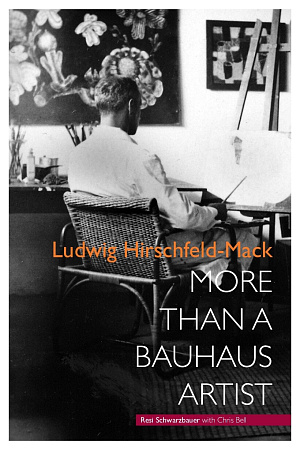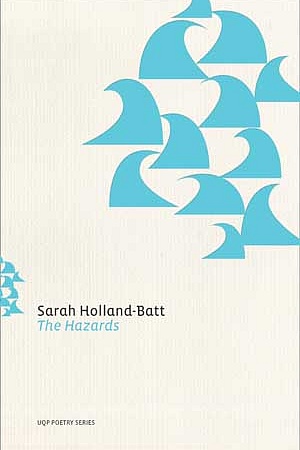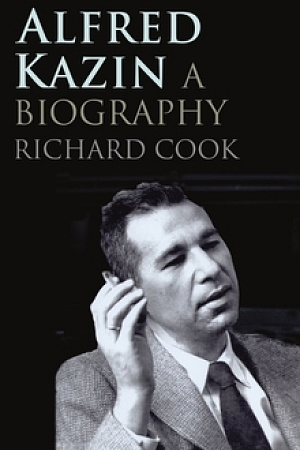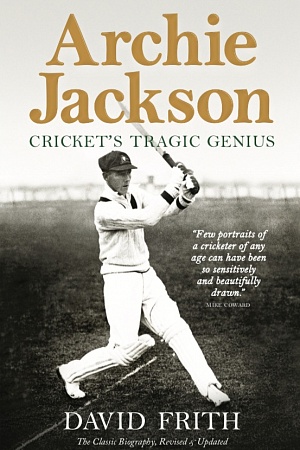Maurice Bowra: A life
Oxford University Press, $85 hb, 385 pp
Maurice Bowra: A life by Leslie Mitchell
Sir Maurice Bowra, renowned as the most lively and learned don in Britain, if not in all Europe, reigned supreme as Warden of Wadham College Oxford for more than three decades until his retirement in 1970. This long-expected biography, diligently researched for many years by the late Michael Davie, London-based author, journalist, and former editor of the Melbourne Age, has now been expertly completed by Oxford historian Leslie Mitchell, who writes with the ease and authority of a biographer thoroughly acquainted with his subject and the College over which he long presided: though not, perhaps, with the sharply quizzical eye that Davie, working outside that golden circle, might have trained on both.
The larger interest of the book, enhanced by its slow period of gestation, is in what it reveals about the more sweeping changes that have overtaken not merely Oxford but the entire world of higher education since the heyday of its subject, whose idiosyncratic style of academic leadership, like his unusual scholarly skills and aspirations, were products of an era now vanished almost beyond recall.
Wadham College, in the years following World War II, was a small and intimate place. It had just a handful of Fellows, who were mainly celibate, dined together most evenings, were well acquainted with one another’s foibles and vanities, and behaved in much the same way as any small, closely bonded, potentially troublesome, highly argumentative family. The Warden’s boisterous and wittily impatient style was that of a benign paterfamilias, who knew that most of his colleagues had as little taste for administrative niceties as he had himself, and shared his strong dislike of bureaucracy, long-windedness and formal procedures. College business was transacted briskly once a week over breakfast at meetings that had to conclude by 10am, when tuition, and the real day, began. Up until the 1960s, this style could be translated more or less effortlessly into a larger administrative sphere. As a notably effective Oxford Vice-Chancellor, Bowra enjoyed setting new land-speed records for meetings of the University Council, normally scheduled to run from 2 to 4pm, but under his chairmanship often concluding by 2.30, and, on one celebrated occasion, by 2.10.
Oxbridge Colleges these days have altogether larger cohorts of Fellows, and infinitely heavier agenda to grind through. Like the Universities to which they belong, and like Universities throughout the world, they are more strictly subject to government monitoring, regulation and reporting. The administrative burdens borne by the present generation of academics Bowra would undoubtedly have viewed as an appalling waste both of their time and of their proper talents.
The further origins of Bowra’s tightly controlled yet faintly subversive style of leadership lay in his personal experiences during World War I, where he had developed a strong sense of loyalty to those with whom he served, together with a particular loathing of senior British officers, and warm admiration for the inspired feats of insubordination achieved by Australian servicemen. In his 1966 autobiography, Memoirs, he describes the behaviour of three Australians in particular, named Bourne, Marsh and Freeman.
They delighted me by their total contempt for spit and polish and their professional knowledge of soldiering. They were magnificently outspoken, and their remarks had a vigour and point which were lacking in most of the English complaints. Bourne was older than the others and had a wealth of experience and anecdote. He insisted that Gallipoli was child’s play in comparison with the Western front and that though the flies and smells were odious, they were nothing like as bad as Flanders mud. He knew all the tricks of military life and enjoyed the role of an old soldier. Once, we had fallen in and were standing at attention, when Bourne smartly stepped three steps forward, broke wind loudly, and stepped smartly back. This was the correct drill for such a need, but he alone knew it. The sergeant in control was on the point of explosion but not sure enough of himself to say anything.
Beneath Bowra’s own strong sense of collegial loyalty and personal discipline ran a similar vein of slightly anarchic mischief, learnt at moments such as these.
Rules and conventions always existed, in Bowra’s mind, to be exploited or nimbly vaulted over. Interviewing candidates for College Fellowships, he would talk almost without pause, answering his own questions at high speed the moment he had framed them. ‘Now, how about James? How about James? How about The Golden Bowl? I’ll tell you about The Golden Bowl.’ And he would, at some length, and in a style appropriate to the subject. This was a disconcerting technique, not only for the candidate who might feel like a tennis junior wandering on to a court where Rafael Nadal was practising his overhead smash but for fellow interviewers watching anxiously from the sidelines. Though highly unorthodox, it was a surprisingly effective method of interview, shattering as it did all carefully rehearsed responses, and testing to the limit the candidate’s social, diplomatic and argumentative skills.
The Fellowship interview was in fact a late invention during Bowra’s time at Wadham, being finally imposed on all Oxford Colleges in the late 1960s by the University, which demanded more formal procedures for the selection of those who would now be required to deliver lectures for their Faculty (for which they received a government-funded stipend), as well as to tutor the students of their particular College, which provided the rest of their salary.
In earlier times, the Colleges had footed the entire bill, and had selected their Fellows according to their own whims and traditions, which inevitably involved one central ritual: the high table dinner. Suitable-sounding applicants were invited to dine with the current Fellows, who would look them over as the port circulated, form an opinion and cast their vote accordingly the following day. The extreme hazards of this system, which, judged against modern standards and protocols, verged upon the scandalous, can perhaps be illustrated by a brief personal digression.
In the early 1960s, I was invited to high table at Wadham on an evening when, as it happened, two of my closest friends were being formally ‘dined’ as candidates for the then-vacant English fellowship. I watched them across the table, as, pale with anxiety, they exchanged small talk with their neighbours, while glancing nervously at the serried cutlery before them. I was relieved not to be a candidate myself (as I had prudently informed my host in advance of the occasion), and enjoyed the evening more than they did, sampling the excellent wines as they passed. Later in the evening, in another room, more wines flowing, I was placed next to the Warden, who for the next hour talked exuberantly and almost without pause. Did I speak at all during this bravura performance? I have no memory of having done so.
Very early the following morning, however, the phone began to ring. Head throbbing, I stumbled to the phone, to hear a familiar voice boomingly congratulate me on having just been elected to a tutorial fellowship in English at Wadham. This was a ghastly mistake, I stammered. He’d got the wrong number. I was the one guest that evening who was not a candidate for that post, and anyhow I’d just been offered (did he recall my saying?) a job in California. ‘Ah, too late, I’m afraid’, was the calm response, ‘we’ve already drunk the champagne.’ This was a classic Bowra ambush, driven by opportunism and low cunning. After a fortnight’s indecision, I succumbed to the seduction, and taught happily at the College until the Warden’s own retirement at the end of the decade.
Other and more profound differences separate Maurice Bowra’s academic world from that of today. He was one of the last survivors of a generation who attempted to absorb and transmit a concept of the humanities that extended across (and often beyond) Europe from classical times to the present day. ‘The breadth of his reading and his work,’ remarked his friend Noel Annan, ‘was unlike that of any other person in England.’ Born and brought up in China, Bowra had travelled by the Trans-Siberian Railway to take part in the Great War, spending time in Russia on the way and improving his skill in the Russian language, which he had first heard as a boy in Manchuria. He mastered Latin, Greek (ancient and modern), French, German, Spanish and Italian, and read with astonishing application in all those languages as well as in English, heading always for what he characteristically called ‘the big stuff’. He wrote about Pindar and Homer and the Greeks, about European epic from Virgil to Milton, about Periclean Athens, about Provençal, Persian and Georgian poetry of the twelfth century, about the songs of the bushmen of the Kalahari, of the Veddas of Sri Lanka, and of the pygmies of Gabon, and much more besides. He had met Henry James while still a boy and read all his work, loved and felt a strong affinity with the writings of Thomas Hardy, admired and befriended both Yeats and Eliot. He translated the poetry of Alexander Blok and Rainer Maria Rilke, and championed the work of Boris Pasternak and Anna Akhmatova. He introduced many writers not just to Oxford but to the English-speaking world, promoting Stefan Georg and Paul Valéry in the 1920s, and Octavio Paz and Pablo Neruda in the 1960s, when their work was scarcely known in England.
His judgements were not unfailingly good. He had no time for Auden and opposed his candidacy when he stood for the Oxford Professorship of Poetry (‘Bad lecturer, bad scholar, bad man, drunk and dirty. He should get in’), and persisted in thinking Edith Sitwell a poet worth taking seriously. While his conversation about writers he admired was always worth hearing, his published writings about them were often quite leaden and dull. Even the titles he chose for his books (such as In General and Particular) could induce fatigue before one had turned the pages, or offend contemporary sensibilities (as did Primitive Song).
The startling disjunction between Bowra’s learned but often pedestrian writings and his sparkling conversation has often been attributed as it is in the present biography to the perpetually inhibiting influence of his undergraduate tutor in Philosophy, the curmudgeonly H.W.B. Joseph at New College, but this explanation hardly rings true. Bowra’s ear was not perfect, and the speed that served him so well in conversation was his undoing in formal prose.
For all his range and versatility, moreover (as he was deeply aware), there were intellectual feats that he simply could not perform. In the mid-1930s he was invited by T.W. Adorno to contribute to a journal that Adorno’s friend Max Horkheimer was editing in New York. Adorno, a leading member of the Frankfurt school of writers who sought to relate literary and historical enquiry to recent developments in the fields of psychology and sociology, had come to live in north Oxford, and was a warm admirer of Maurice Bowra’s work. The essay that Bowra produced for the journal, though finally published after much struggle and revision, proved something of an embarrassment, being all too obviously in the belletristic tradition. He had scant interest in social theory and no real wish to apply its insights to the area of classical studies in which he worked. The new waves of critical theory coming from Paris and New Haven during the final years of his life likewise touched him not at all. The subsequent transformation of literary studies, in the years following his death, into specialised areas of cultural, theoretical and communication studies would have caused him nothing but distress.
Bowra died in 1971, at what he himself might have characterised as a well-judged moment. The spacious intellectual world into which he had been born, and the privileged academic sphere over which he had so long presided, had begun to change in ways he did not wholly approve or understand. Student unrest had come to Oxford. Columns of chanting students marched down South Parks Road past his College, demanding academic reform. Always having seen himself as a champion and friend of students, Bowra was distressed by their more extreme demands, privately confessing that he no longer understood the young. In one sense, however, Bowra did understand how such moments of social transition occur, and what they portend, for as Mitchell shrewdly points out, they were what he had studied in other civilisations all his scholarly life.
Bowra wrote books on Homer and Sophocles, but it is hardly a coincidence that his academic work is concentrated heavily in the period 550 to 480 BCE. He is less interested in the heroic age or the democratic Athens of the later fifth century. In his chosen period, aristocratic government in city states was often giving way to more democratic forms. The analogy with his own times could hardly be missed.
The classical poetry that Bowra most admired had been written by members of aristocratic families: Alcaeus, Sappho, Xenophanes, Theognis and above all his beloved Pindar, whose verse anticipated the changes that were to come as democratic reforms were introduced into the ancient society in which he lived. It was perhaps a similar note of ambivalent lamentation that appealed to Bowra in the poetry of Yeats, as the old and privileged way of life in Ireland gave way to the new.
‘I’m rather looking forward to meeting the Almighty’, Bowra would say from time to time with typical robustness during these final years. ‘I have three questions for him. All unanswerable.’ Right to the end he regarded life, and the possible life that lay beyond life, as a natural extension of the viva voce examination and the Fellowship interview: as a series of contests in which he himself would often simultaneously play with great relish the opposing roles of formidable interrogator and brilliant respondent. Competitive to the last, he was also uneasily aware that from a longer historical perspective, and in a deeper personal sense, his time had already passed. On occasions he might even doubt more gloomily, more unreasonably, recalling the high standards to which he himself aspired whether it had ever really come.











Leave a comment
If you are an ABR subscriber, you will need to sign in to post a comment.
If you have forgotten your sign in details, or if you receive an error message when trying to submit your comment, please email your comment (and the name of the article to which it relates) to ABR Comments. We will review your comment and, subject to approval, we will post it under your name.
Please note that all comments must be approved by ABR and comply with our Terms & Conditions.